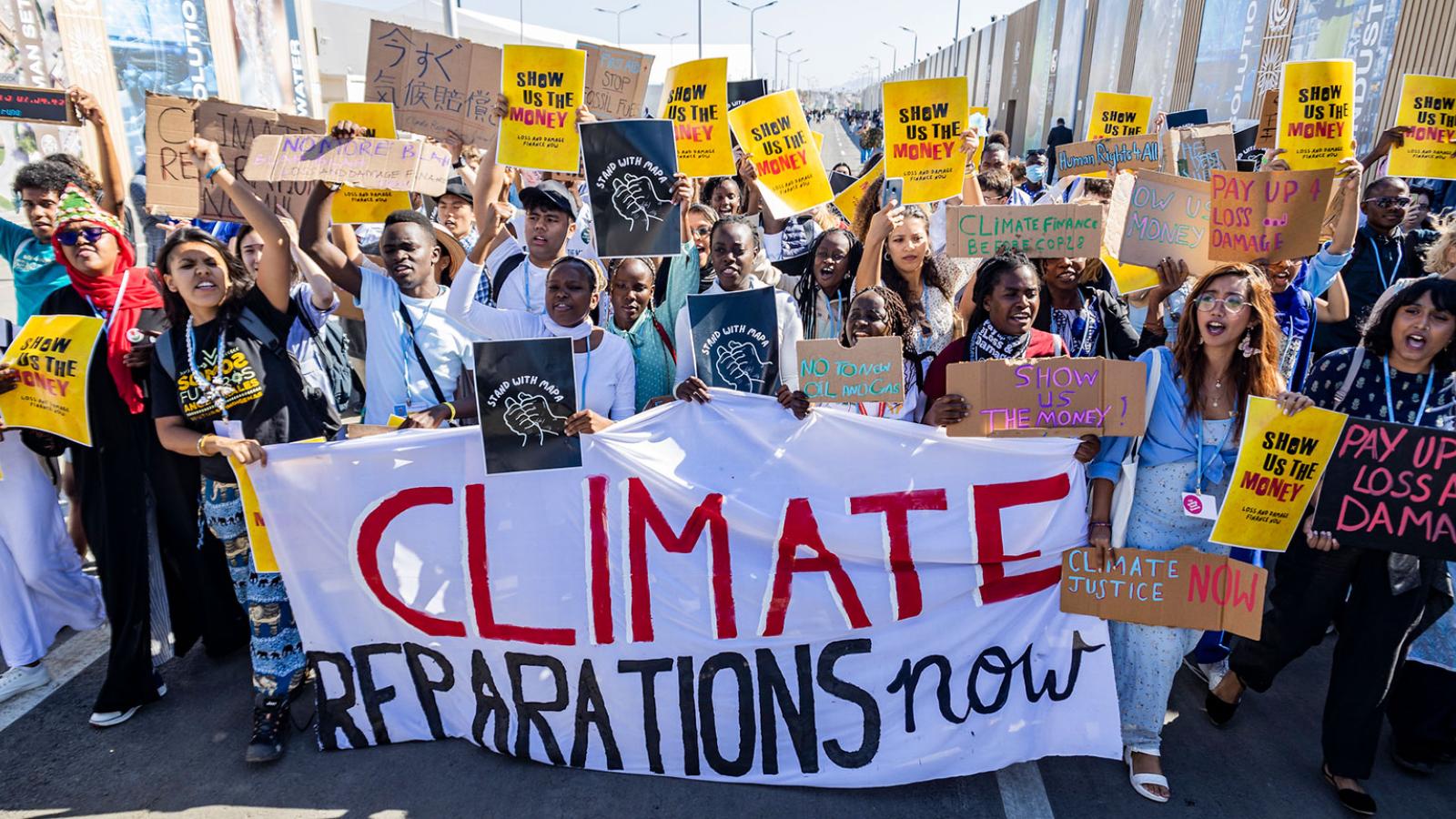Climate migrants: victims or agents of change?
International organisations have projected that millions of people will be forced to migrate due to climate change in the coming decades. The World Economic Forum has labelled climate migrants ‘the world's forgotten victims’ due to their lack of legal protections, and this framing is used frequently in policy and media debates to mobilise public support for climate change and migration issues. However, the portrayal of migrants as passive victims pushed around by uncontrollable forces is an incomplete one.

In this context, we dedicated the most recent event in our Climate Change and the Challenges of Development series to rethinking climate change and migration and, in particular, the role of migrants as agents of change rather than just victims. The event, which was recorded and is available online, took the form of a panel featuring Raul Hinojosa-Ojeda (UCLA), Yvonne Su (York University) and Abel Valenzuela (UCLA).
I had the pleasure of chairing the conversation and I think that the discussion led to three key insights regarding the link between migrants and climate change.
Diasporas can be agents of change and drive economic, political and social transformation in countries of origin and destination to address the climate emergency
Migrants send billions of US dollars back home every year. In 2022 alone, the global flow of remittances reached $836 billion. This money is used for consumption, education and investment among other things. This money is also used for post-disaster recovery, with research pointing to the key role of diaspora communities in supporting family and friends after natural disasters.
However, there is a weak link between those monetary flows and green investments, a gap that financial instruments such as green diaspora bonds could potentially fill. Diaspora bonds are financial instruments sold at a slight premium to diaspora members, thus providing a ‘patriotic discount’ in borrowing costs for their countries of origin. Green bonds are financial instruments earmarked to raise money for climate and environmental projects. Green diaspora bonds combine the desire of diaspora members to do good for their country, with the desire to do good for the environment.
A reason for the weak link between remittances and green initiatives is the lack of financial institutions that can channel remittances into those initiatives that can have the greatest effect on environmental issues. Importantly, it is imperative to respect the private nature of remittance money and the diaspora should not bear sole responsibility for climate change action in countries of origin, given the incompetence of national governments in dealing with these issues. The idea is to offer migrants and their family members investment options with a dual purpose: provide a financial return and help address issues related to climate change. The potential for such investments is large as remittances represent just a small share of the total wealth of diaspora communities.
However, it is not just about money. Diasporas have substantial political influence in countries of origin and destination, including the right to vote in many cases. Therefore, these communities could assert political pressure in both countries to prioritise topics related to climate change.
Moreover, diaspora members could transfer knowledge about sustainability to their countries of origin, with a major role for academia in this process.
There is a role for the diaspora, regardless of whether ‘climate migrants’ exist
International organisations have projected that millions of people will be forced to migrate due to climate change and have raised the alarm in policy circles. Yet, in academia, there is still debate around the existence of climate migrants. Some academics assert that there is clear evidence of people being displaced by floods, wildfires and related events. Others make the case that migration is driven by multiple factors and it cannot easily be linked solely to climate change or environmental conditions. Many academics on both sides of this debate are also sceptical about apocalyptic scenarios that forecast massive migration movements.
Yet, migrants around the world engage economically and politically with their countries of origin in a multiplicity of areas, regardless of their reason for leaving the country in the first place. In order to engage with issues related to climate change back home, migrants do not need to be ‘climate migrants’. Members of the diaspora can get involved, regardless of their original reason for migration.
This is one of the most important contributions of our conversation. Rethinking the link between climate change and migration means thinking about the links between all migrants and climate change, not just those who (perhaps) have migrated in response to it.
Indigenous communities need to be involved, including their transnational component
Arguments against many policies addressing climate change in low- and middle-income countries include the lack of engagement with indigenous communities that are often at the frontline of the impacts of climate change and any actions to address those impacts.
However, many of those debates portray indigenous communities as bounded to a geographical place and ignore the role of transnational connections that have resulted from emigration of community members to other countries (or even to other regions within the same country). For example, an institution such as a community-led bank links the indigenous community across international borders. Members of the community in different countries need to be involved in the planning to ensure a successful business model.
What are the next steps?
There are four key steps as we move forward with this discussion. These four steps require collaboration by academics, policymakers, the private sector, philanthropists, diaspora groups and communities of origin
- Getting onto the main policy agenda: There is a need to solidify and cement the idea of migrants as agents of change into climate change discussions. This includes presence at UN Climate Change and related conferences.
- Creating a network of scholars: It is important to create a network of scholars interested in exploring the ways in which migrants can be agents of change concerning climate change issues. The activities of the network could include panels such as the one in Oxford, but also major conferences, publications, and coordinated research projects.
- Involving the private sector: Involvement of the private sector, including financial institutions, is important to create financial instruments that are attractive to diaspora members, serve the needs of indigenous communities and help address climate change issues in communities of origin, including the protection of biodiversity.
- Raising funds from the philanthropic sector: The goal is to have a system in which diaspora investments generate sufficient funds to sustain the other elements of the agenda. However, there is a need for initial investments to fund the presence in international forums, the creation of the network of scholars and to develop the financial instruments with the private sector. Philanthropic investment has a key role to play in the initial stages of that process to create a self-sustaining long-term agenda.

